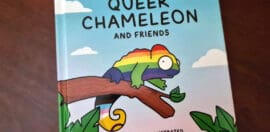Share your secret sauce

26 April 2021 at 7:09 pm
In an extract from his book, Building Unity, Canadian charity leader and professional breakdancer Michael “Piecez” Prosserman discusses why charities need to get better at collaborating with each other.
At age 16, Michael “Piecez” Prosserman, a professional b-boy (breakdancer), completed a school project that would grow to become a hip-hop-inspired mental health charity with global reach. Through a process of continuous discovery and reflection, Prosserman and his team grew Unity to the point where it benefitted over a quarter of a million young people. In his recently released book, Building Unity, Prosserman breaks down the six steps to discovering “responsible impact” and building an organisation that is growth-minded, values-based, and reflective of the needs of its community. The following is an extract from the book.
Whether we like to admit it or not, the not-for-profit sector is competitive. 
There is a spoken and unspoken protectiveness around intellectual property as it relates to programming, resources, and research in charities. I think this is bullshit.
Charities should operate to help solve problems that exist in the world, not out of self-interest. By sharing our secret sauce with each other, we can have a far greater impact for the people we serve than we can working in isolation and guarding resources. Making a sustained and responsible impact is not about being the best or the biggest. It is about working towards a collective mission. Collaboration is needed now more than ever to combat the world’s most pressing challenges.
Our work is a small part of a bigger social picture. The work is interconnected and interrelated. Working together, we can create responsible and respectful change. Working alone, we create new problems. We need to put our impact before our egos. We need to stop hoarding great ideas with the goal of keeping our organisations alive. We need to think about the bigger picture.
We need to know what we do well, do what we do well, and find collaborative partners to fill the gaps of what we don’t do well. I have had direct meetings with funders and donors who encourage and finance collaboration. The missing link is we need to teach the sector how to work together better. The problem is the system falsely incentivises competitive mindsets of scarcity over collaborative mindsets of abundance. We are caught chasing funds instead of truly trying to make change. In addition, I believe the real solutions are found in more cross sector collaboration between not for profits, governments, corporations, communities, and individuals.
At Unity, we tried to embody a collaborative versus a competitive mentality. Partnerships worked well when we embraced the purpose of creating greater impact together.
Imagine a world where we could share resources, people, and ideas across multiple charitable organisations. Imagine the impact this could have both from a beneficiary and financial perspective. Anything at Unity that I believed could add value to the sector, I would share openly with other organisations and artists here in Canada and around the world. An authentic and well-matched partnership can be a transformative experience for the team, and more importantly create something completely unexpected that can have an exponentially larger impact. On the flip-side, a partnership with falsely aligned values or mismatched corporate culture can be a disaster.
I shared Unity’s model with organisations in Sweden, the Netherlands, Italy, and Japan. I saw hybrids of our programs sprout up all over the world, run by local hip hop artists and organisers. Not everything needs to be branded and claimed.
I was once contacted by an organisation in a small community in northern Sweden running a dance camp. They invited me to their city, Älvsbyn, to share Unity’s model. I shared everything I could in-program curriculum, artist training, organisational structure, fundraising, and more. Several months later they launched a funded hip hop school program in three schools in Sweden. All I did was share our model and approach openly. I believe we need to share knowledge more freely, because knowledge is power.
Extract taken from Building Unity: Leading a non-profit from spark to succession by Michael “Piecez” Prosserman, published by ECW Press, 2020. Republished with permission.







